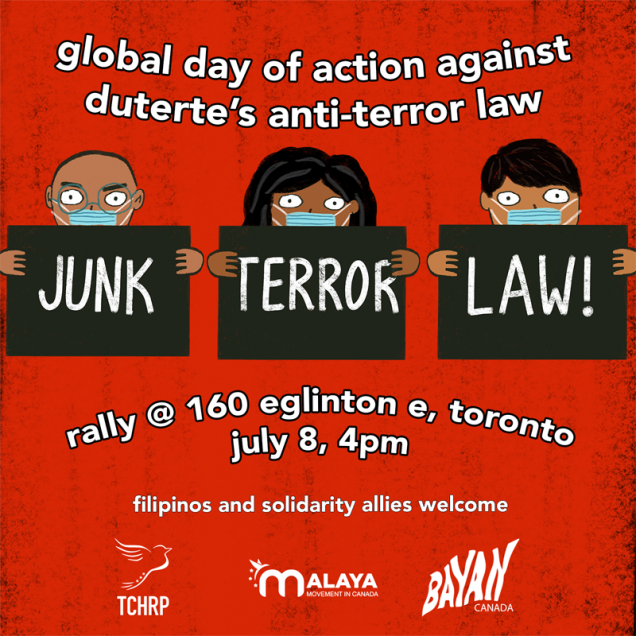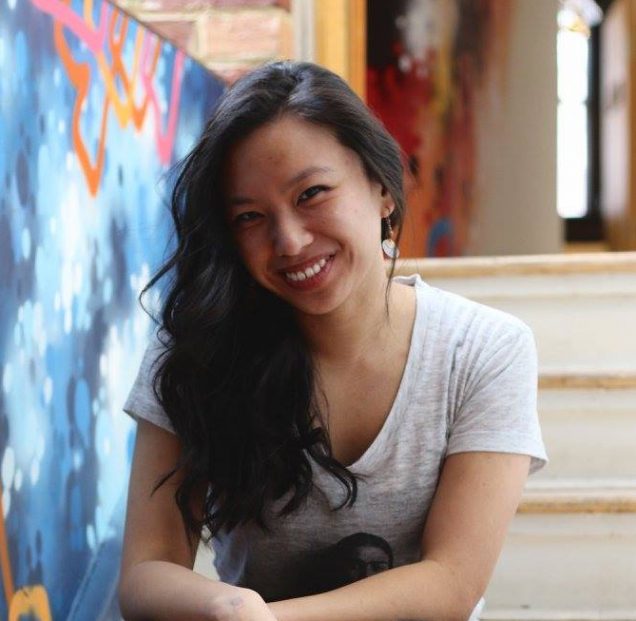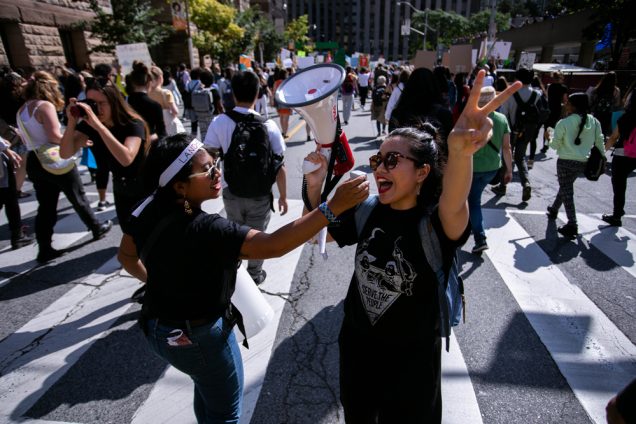Fil-Canadians speak on Anti-Terror Law: We should not allow history to repeat itself
Fil-Canadians speak on Anti-Terror Law: We should not allow history to repeat itself

Anakbayan’s anti-terror law poster
By Irish Mae Silvestre
The Philippine Reporter
Amidst the chaos of the pandemic, President Rodrigo Duterte’s anti-terror bill has continued to cause uproar in the diaspora. The controversial law signed by the president on July 3, is an amendment of an existing law and allows for the warrantless arrest and detention of suspected terrorists.
Critics have deemed the law unconstitutional and could pave the way for further violation of basic human rights. The Philippine Reporter reached out to community members to share their thoughts on this issue.

Justine Abigail Yu
Justine Abigail Yu, 30, founder and editor-in-chief of Living Hyphen
“Just two weeks before pandemic lockdown, I returned home to Canada after a trip to the Philippines. Since then, I’ve watched from afar as my motherland descends even further under President Duterte. The government has enforced curfews and checkpoints, inching towards martial law under the guise of protecting its citizens from COVID-19. The government has shut down the largest independent media outlet that has actively spoken out against the current administration. And now, this ‘anti-terror’ bill that is so vague and broad it’s clearly aimed at anyone who chooses to speak out or stand up against his increasingly dictatorial regime.
“It’s an outrageous overreach of power and, simply put, it’s an abomination. It’s not shocking given who Duterte is, what he stands for, and who has propped up his ascent to power, but it is nevertheless frightening for our kababayan who must live under his rule.
“I hope all of us Filipinos, both in the homeland and diaspora, rise up to protect our freedom and democracy. Our people should know all too well what it’s like to live under a dictator and we should not allow history to repeat itself.”
B.R.*, multidisciplinary artist
“As a Filipina in the diaspora, I believe that the foundations of this law go against basic human rights. As an artist in the community, I realize even deeper the importance of advocating for our people and our freedom of speech. We still have the power to speak up, even in the face of being silenced and oppressed.”

Tony San Juan
Tony A. San Juan, 78, retired educator
“The anti-terror bill is a very serious threat to Filipinos and to the country’s cherished democratic principles. It’s a power coup under the guise of national interest and security.
“The new act, I suspect, criminalizes any new offence considered to be ambiguous and vague. I’m worried about law enforcement officers arresting without a warrant and detaining individuals for 14 to 24 days, particularly anyone suspected of any terrorism offence. These terrorism suspects, according to government interpretation, will include those accused of incitement through speech, writing, banners or other proclamations even without taking any direct part in the commission of terrorism. The current leadership, however, said that the protest, dissent or advocacy by individuals or groups is protected under the law as long as they don’t create a ‘serious risk to public safety.’ But who decides who’s inciting terror or creating a serious public safety risk?

Members of Anakbayan Toronto at a rally. (Photo credit: Shayne Hontiveros)
“The President and his administration now have the ‘tools to weaponize the law’ and to systematically suppress and smother dissent, especially among his political critics, the opposition, journalists, concerned citizens and advocates.”
M.S.*, 68, business owner
“There are many Filipinos who are against the bill, which was railroaded even during the pandemic. It’s against the constitution because it violates the basic human rights and might be used against the critics of the government, resulting in warrantless arrests if you’re a suspected ‘terrorist.’
“The new law allows for terrorism suspects to be detained without warrant, prolongs the amount of time that they can be detained without being charged in court, removes a requirement that the police presents suspects before a judge to assess whether they have been subjected to physical or mental torture.
“The problem is that the group that will implement the new law is the police – the very same group that’s perceived as the most corrupt department of the government that killed 27,000 people under the president’s ‘war on drugs.’”
Rosetta Lucente, 19, secretary general of Anakbayan Toronto
“Youth in the Philippines are being killed and arrested in their struggle for life, land, and liberty. the Anti-Terrorism Law will only intensify these attacks. Just last week, 11 youth activists in Laguna were arrested for demanding their civil rights. Another youth activist, Ina Nasino, remains illegally imprisoned just after giving birth.
“To all Filipino youth in Canada: we have a role in the liberation struggle of the Philippines. We cannot fully celebrate our culture while our people are still not free from oppression. We invite you to unite, learn, and mobilize by joining Anakbayan Toronto. Laban kabataan!”
Leny Rose Simbre, chairperson at Migrante Ontario
“Duterte’s anti-terror law is a threat to dissent and democracy. It’s an attack on our basic rights and our human rights. This law can bring fear to everyone as this law allows the government to tag anyone who express dissent against Duterte’s regime as a terrorist, no matter how legitimate their demands. We need to condemn this law and fight Duterte’s fascism and dictatorship. Junk the terror law!”
*Name withheld on request
Comments (0)